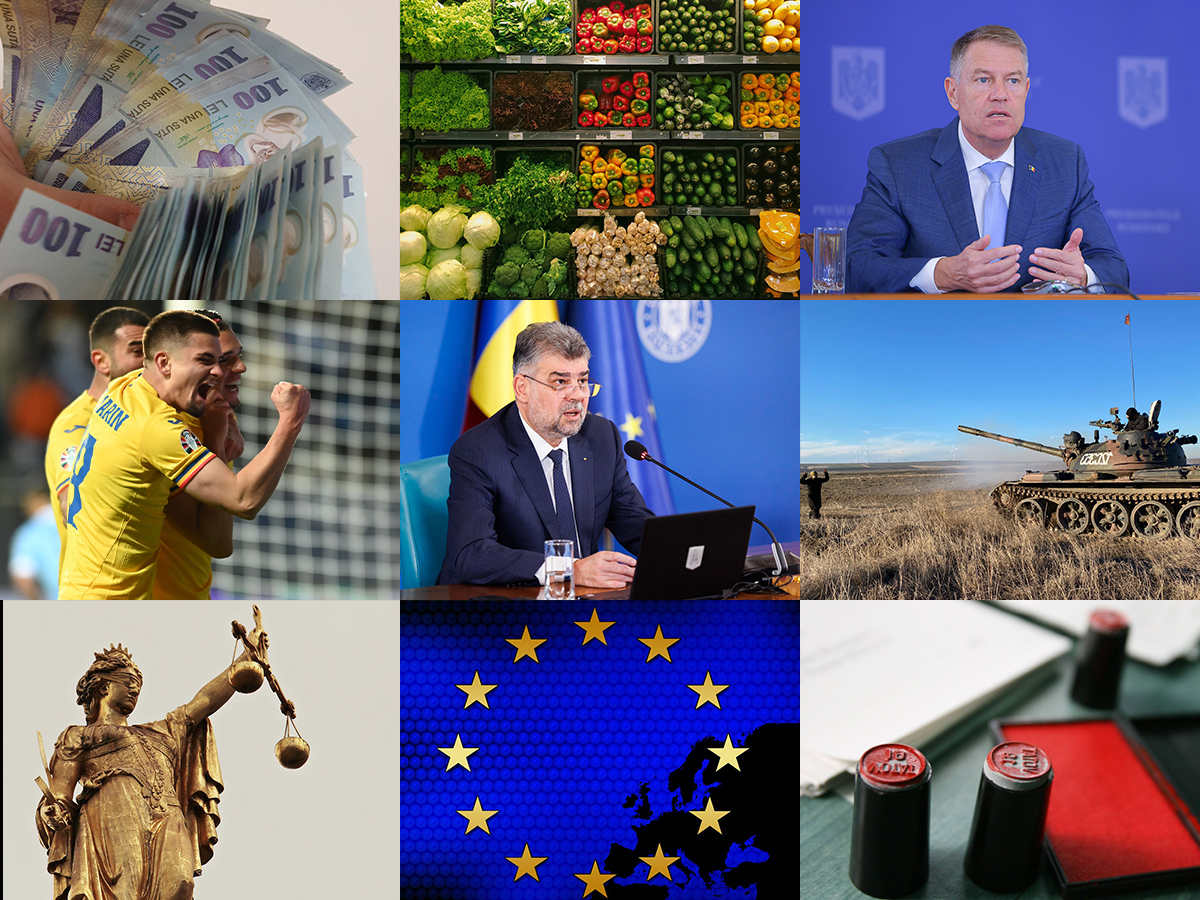The Week in Review April 28 – May 3
A roundup of the week's main stories

România Internațional, 03.05.2014, 13:00
Moldovan citizens can travel to the EU visa free
As of April 28th the citizens of the Republic of Moldova — a former Soviet republic with a majority Romanian-speaking population – can travel without visas to the European Union – with the exception of Britain and Ireland – and also to the Schengen member states that are not part of the EU, such as Island, Norway, Switzerland and Liechtenstein. Benefiting from the visa liberalisation are holders of biometric passports, that is some 750 thousand out of the total 2.5 million Moldovan citizens, who can travel abroad as tourists for a period of maximum 90 days. Chisinau started negotiations with the European Union on lifting the visas for its citizens almost 4 years ago, less than a year after the current pro-European alliance came to power. To celebrate the news, a series of events have been staged, among which a symbolic meeting between Romanian Prime Minister Victor Ponta and his Moldovan counterpart Iurie Leanca at one of the checkpoints on River Prut. Bucharest has given assurances that it will continue to support Moldova’s accession to the European Union, a goal that Chisinau hopes to reach by 2019, when Romania will, for the first time, take over the Union’s rotating presidency. Beyond this unconditional support, Romanian and Moldovan officials have to identify ways of cooperation in the field of security. According to Victor Ponta, it is the crisis in Ukraine and the security environment in the region that call for that. Prime Minister Iurie Leanca thanked Romania for the constant support granted to Moldova’s EU accession process. Moreover, he emphasised the importance of carrying out joint projects in the fields of infrastructure and energy.
Romanian Foreign minister Titus Corlatean paid a visit to the US
Romanian Foreign Minister Titus Corlatean paid a visit to the United States on April 29th and 30th to attend a conference on issues related to Europe. Ahead of the meeting, Minister Corlatean met with representatives of the US Congress and members of the Romanian community with whom he discussed, among other things, about cooperation in the field of security and about the situation in Ukraine. During a meeting with the US Secretary of State John Kerry, Corlatean has given assurances that Romania, as member of the EU and NATO, supports, without reservations, firm sanctions against Russia. These sanctions, says Corlatean, must be accompanied by a solid military presence in Eastern Europe. At a meeting with Frank Rose, Deputy Assistant Secretary of State for Defense Policy and Verification Operations, Romanian President Traian Basescu voiced concern at the worsening international situation in the Black Sea area and at the possible consequences for Romania and NATO. Traian Basescu also said Romania would not hesitate to take over its European and Euro-Atlantic responsibilities in order to guarantee its own security and the security of its allies, and to impose the necessary sanctions against the Russian Federation, in a complicated regional context, marked by the events in Ukraine.
The Romanian Theatre Union awarded the best artists of 2013
The 22nd UNITER Awards Gala, the most important annual event of the Romanian theatrical world, was hosted this week by the Palace of Culture in Targu Mures. “Victor or Power to the Children” by French playwright Roger Vitrac, put on by Silviu Purcarete at the State Hungarian Theatre in Cluj-Napoca, was designated the best production. Cornel Raileanu got the best leading actor award for his role in “A Hell of a Mess” by Eugen Ionesco staged also by Silviu Purcarete at the National Theatre in Cluj-Napoca. The best leading actress award went to Alexandra Fasola, the youngest of the nominees, for her role in “Yentl” at the State Jewish Theatre in Bucharest. Two short stories by Mikhail Bulgakov “The Embroidered Towel” and “The Steel Windpipe” produced by Radio Romania reaped the best radio drama award. The best director award went to Laszlo Bocsardi for “Hamlet” staged at the “Tamasi Aron” Theatre in the central town of Sfantu Gheorghe. The Excellence Award was granted to the popular actor Victor Rebengiuc, who was given a standing ovation by the 500 personalities invited to attend the Gala.
Double canonisation in Rome
John XXIII and John Paul II were canonised before a large audience gathering on Sunday in St. Peter’s Square in Rome. Pope XXIII called the second Vatican Council, which opened the church towards the modern world and other religions. Pope John Paul II, the first Polish Pope and a charismatic and tireless messenger of Christ’s love all over the world, is believed to have had a big contribution to the fall of communism in Eastern Europe. The festivities held on Sunday were also attended by the Metropolitan Archbishop of Bucharest Ioan Robu, numerous priests, monks and nuns as well as believers from all over Romania. Both of the two canonised popes travelled to Romania in their day. Pope John Paul II paid a historic visit to Romania in May 1999, the first by a pontiff to a country with an Orthodox majority population. Before becoming pope John XXIIII, Angelo Roncalli visited Romania in 1930 and 1932, while he was serving in a diplomatic mission in Bulgaria. As an apostolic delegate to Turkey, in 1944, following a request from the Chief Rabbi of Jerusalem, he helped the Romanian Jews deported to Transdniester, today in the Republic of Moldova, by sending aid to concentration camps and issuing baptism certificates. Monsignor Roncalli also convinced the Turkish authorities to allow a ship carrying Romanian Jews bound for Jerusalem to cross Turkey’s national waters, thus helping 750 Romanian Jews, third of whom were children.




























